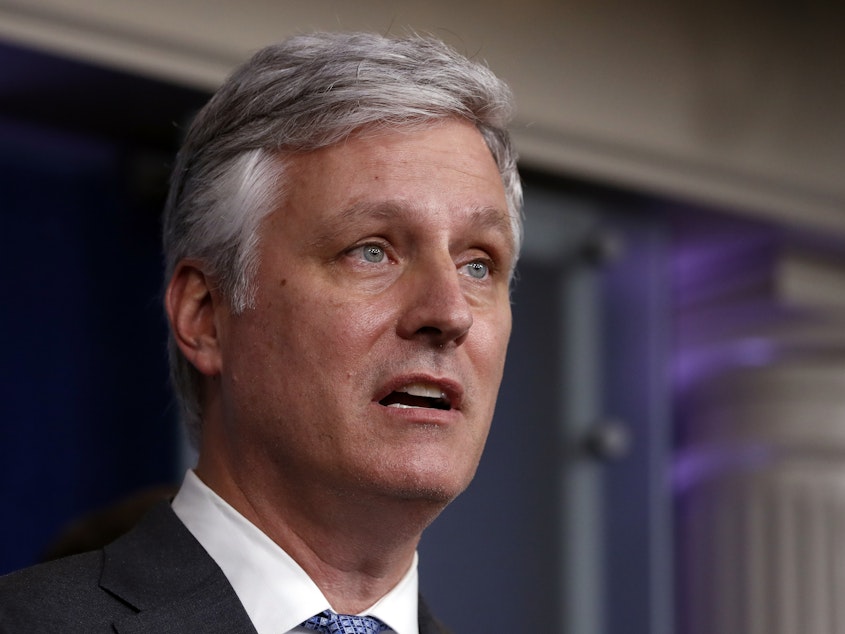National Security Adviser O'Brien Alleges WHO Is 'Propaganda Tool For The Chinese'

National security adviser Robert O'Brien has accused the World Health Organization of being "a bit of a propaganda tool for the Chinese," and said the White House is investigating whether money from China influenced the WHO's judgments during the coronavirus crisis.
O'Brien made the remarks in an interview with Morning Edition host Steve Inskeep on Tuesday. The interview will air on Wednesday.
President Trump announced last week that the White House is putting a hold on the United States' funding of the WHO, pending an investigation.
O'Brien said China "controls" the WHO, and said the administration's investigation is intended to uncover how.
"We spend almost half a billion dollars with the WHO," he told Inskeep. "China, which controls the WHO, unfortunately — the WHO has become a bit of a propaganda tool for the Chinese — spends about $40 million. At least that's what they spend with the organization openly. How they may spend other money to influence the organization — that's something we're investigating very carefully."
Sponsored
O'Brien said "we just don't know" whether money from China influenced the WHO's decision-making.
"There's obviously a lot of corruption at international organizations and we're going to take a close look at that issue," he said. "But there are very few explanations for the way the WHO has conducted itself. And that's why we're taking a pause on the money that we're going to put into the WHO until we have a thorough investigation of what happened here."
Asked for details about what form the investigation is taking, O'Brien repeated the same criticisms that Trump has made frequently in recent weeks: that the WHO was slow to respond to the threat of COVID-19, that it criticized Trump's ban on travel from China and other countries, and that it gave unwarranted praise to China's containment of the virus.
He said that if the White House can't get "the reforms necessary" at WHO, it will instead give money directly to aid organizations like the Red Cross and Doctors Without Borders.
The U.S. is the single largest contributor to the WHO. For the two-year cycle of 2018 and 2019, U.S. contributions accounted for about 20% of the WHO's total budget, as NPR's Pien Huang reported. For that two-year period, the U.S. contribution in assessed fees was $237 million, and it pledged an additional $656 million for specific programs. The U.S. contributes 22% of the WHO's pool of assessed fees, while China contributes 12%.
Sponsored
In recent days, administration officials including Secretary of State Mike Pompeo have been raising the idea that the virus might have leaked from a lab in Wuhan, China.
"We don't know where the virus came from," O'Brien said. "Maybe it came from a wet market in Wuhan. Maybe it came from one of the two virology labs in Wuhan. ... The burden is on the Chinese to explain where the virus came from. But there is a lab in Wuhan that deals with this sort of virus. And we need to know if there was some sort of release. Accidental, perhaps."
O'Brien is the president's fourth national security adviser. He was named to the post in September, replacing John Bolton, who was forced out by Trump. [Copyright 2020 NPR]

